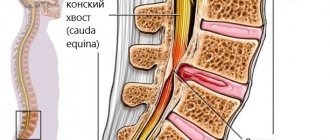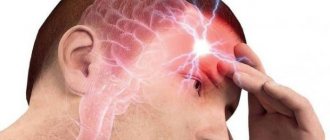Let's define what it is nervous stress. This is a non-specific reaction of a person to any influence, be it psychological or physical, that disrupts his vital functions, as well as the state of his nervous system. At the same time, adrenaline is produced in the human body as a reaction of the body to the pathogen. It forces the brain to look for ways to survive in a given situation. Without stress, life would be boring and unmotivated. A small amount of it is necessary in the life of every individual. But if the complexity of tasks increases, accumulates and a person is no longer able to solve them, nervousness, unreasonable anxiety and tension appear.
Symptoms
Symptoms of nervous stress are as follows:
- Uncontrollable panic;
- Increased heart rate;
- Increased sweating;
- Unreasonable anxiety;
- Anxiety;
- Increased muscle tension;
- General fatigue;
- Sleep disturbance;
- Irritability;
- Loss of concentration.
Symptoms can increase gradually or suddenly fill the consciousness. Panic attacks most often do not last long. Psychologically, they are expressed by uncontrollable and inexplicable horror. Physiologically, panic is manifested by increased heart rate and sweating, chest compression, and suffocation. Nausea appears, breathing becomes shallow, and the body begins to tremble. A rise in temperature can also be a sign of a panic attack. The most obvious signs of this are anxiety and restlessness.
How to relieve nervous tension at home
First of all, relieving tension consists of balancing the emotional state. In other words, the primary tasks for an individual are to recognize the presence of a problem and find possible ways to free themselves from an oppressive situation.
So, treatment of nervous tension, elimination of tightness and excessive excitability should begin, first of all, with awareness. As stated above, you should eliminate the cause that gave rise to such a condition, understand the root of the problem, identify the provoking factor and select the most suitable method that will help you achieve emotional “peace” within yourself in one fell swoop and eliminate constriction.
Further, the “work” consists of eliminating subconscious fears. Uncontrollable, causeless fear can hinder all effective efforts to cope with the approaching stress. You should learn to manage and eliminate them, in order to subsequently replace them with a feeling of peace.
In order to avoid exhaustion of the nervous system, you need to stop accumulating feelings on the subconscious level. Stiffness of the body and an excess of nervous tension often give rise to negative emotions, such as resentment, anger, rage, envy, arrogance. In order to feel relief and throw off the burden of negativity, you need to talk through all the accumulated emotions. You can, for example, write a letter outlining a situation that gives rise to emotions with a negative charge, and the negative feelings themselves.
All psychological prohibitions should be excluded. Any positive desires must be realized. Otherwise, the desire is transformed into a heavy cobblestone falling into the depths of the subconscious. All restrained desires and dreams are emotional clamps that block the feeling of joy and happiness, leaving only suffering and a persistent feeling of dissatisfaction with oneself.
In the battle against nervous exhaustion, meditative practices and auto-training in the form of affirmations have proven themselves to be excellent. Repeating positive attitudes will help lift your spirits and overcome bad feelings.
Sports are also effective in eliminating excess tension. Physical activity promotes the production of the happiness hormone, which invariably has a beneficial effect on the emotional state.
There are also ways to quickly relieve nervous tension in adults. They are listed below.
First of all, in order to quickly eliminate the effects of nervous tension, it is recommended to change the environment. And here a walk with alternating pace of movement is ideal. Quite quickly the irritation will subside. Since the functioning of the endocrine system is normalized, the activity of the areas of the brain responsible for mood is activated, the processes generated by stress are switched to ensuring physical activity.
The result is achieved more quickly if, during a walk, you shift your attention from the problematic issue to something else, for example, to daydreaming.
Painstaking work with your hands will also help eliminate nervous tension: you can sort out small parts, type something on a computer, or knead an anti-stress toy. After all, the fingertips are “equipped” with a huge number of nerve endings, the activation of which eliminates tension.
If your health allows, then extreme food will help relieve stress, for example, you can eat a piece of hot pepper. It is believed that this action will cause a rush of endorphins.
The usual touches of loved ones and their hugs have a quick effect. They recharge the individual with positive energy and are able to restore internal balance.
Intimacy is considered an effective and quite useful method that has no side effects. This process affects the production of pleasure hormones, which has a beneficial effect on the nervous system. In addition, thanks to intimacy, spasms and muscle tension, which always accompany prolonged nervous tension, are eliminated.
In order to get rid of accumulated tension, it is necessary to take an example from the little inhabitants of the planet. Kids love to make faces and imitate adults. For which they are often scolded. And in vain. Little ones intuitively know how to quickly relieve nervous tension. Therefore, if your mental strength is running low, you need to indulge in such a fun and rather simple activity as making faces or making faces in front of a mirror surface. This will not only free you from emotional burden, but will also definitely improve your mood.
It is also recommended to smile when you are feeling unwell. There are often circumstances when you want to howl, but even under the weight of insoluble problems and emotional exhaustion, you must try to stretch your lips into a smile. The body will be sincerely amazed at the “abnormal” reaction. He will be amazed and decide that everything is fine and will only get better. Doctors have long established the existence of a direct relationship between the blood supply to the cellular structures of the brain and the involvement of facial muscles.
When a human subject smiles or laughs, blood flow into the tissue structures of the brain increases, therefore, the oxygen content also increases, which affects the performance of the brain and has a beneficial effect on the state of mind. As a result, laughter and smiling eliminate fatigue and promote switching to a different state, activating the body’s protective response.
Treatment
First of all, it should be mentioned that stress can be avoided. You can start treatment yourself. To do this, you need to learn to cope with stressful situations. It is necessary to use relaxation techniques or deep even breathing. Simple physical activities, such as simple exercises, will improve health and increase a person's ability to resist. Eliminating harmful substances (coffee, alcohol, nicotine, etc.) from your life will reduce anxiety. It is imperative to learn how to cope with your phobias. This will be taught by qualified doctors of the Rehab Family clinic, recognized in Europe and America. The rules guarantee complete confidentiality. The Rehab Family clinic is distinguished not only by effective treatment methods, but also by providing comfortable conditions for the complete adaptation of patients.
At the beginning of treatment, it is necessary to discuss its stages with loved ones, explain your actions and emotions, so that they can also help or, at least, not interfere. The treatment prescribed by the doctor must be strictly followed. Its course is usually observed in dynamics during visits. Patients of the Rehab Family clinic can seek help at any day and time. The disease, like our doctors, has no holidays.
How to relieve nervous tension
The tension of the nervous system should not be underestimated, since, despite the supposedly harmless symptoms, this disorder often leads to sad consequences. Therefore, having recognized the manifestations of nervous tension, you should immediately begin active actions to eliminate the factors that caused the described condition and symptoms.
Treatment of nervous tension in adults is recommended to begin with normalizing sleep. First of all, you should try to fall asleep without the help of pharmacopoeial drugs. You should also avoid alcohol, daily coffee, and energy drinks. Before leaving for the Morphean Kingdom, it is recommended to avoid watching television, computer games or wandering on the Internet. Light physical activity, such as an evening jog or a regular walk, helps you fall asleep quickly and easily.
Relief from nervous tension often includes the prescription of sedatives, preferably of herbal origin. In addition to the above, you need to seriously consider reviewing your daily routine and be sure to follow it in the future. It is also necessary to adjust the composition of the daily diet: eliminate unhealthy foods, replacing them with healthy provisions enriched with “life-giving” substances.
Communicative interaction with friends has a positive effect, so it is recommended to turn off the Internet and go out into nature with loved ones. This will harmonize your internal state and eliminate stress and nervousness.
In addition, in order to normalize the mental state, interpersonal confrontation in the family or in the work environment should be resolved. It is better to discuss any problem than to harbor resentment over the careless words of loved ones or colleagues.
You should also make time for physical exercise regularly. Swimming, massage, morning contrast showers, and baths with herbal infusions have a beneficial effect on the emotional background. In addition, to eliminate nervous tension, there are various techniques, for example, meditation or yoga.
If none of the above has helped, then pharmacopoeial drugs are prescribed, first of all, vitamins (increase resistance to stress, reduce the risk of myocardial pathologies, vascular diseases and neurological abnormalities, supply the body with useful substances), drugs aimed at correcting cerebral circulation (eliminate headaches) , improve cellular trophism, thereby increasing performance), antidepressants, nootropics (increase trophism of brain tissue, have a psychostimulating effect).
Stress and psycho-emotional tension
Stress is a state consisting of a complex of negative internal processes. Tension is individual moments that arise due to stress factors and entail serious consequences for the further development of a person.
These concepts indicate the psychological state of a person. Psycho-emotional stress causes physical and mental stress, characterized by a partial loss of control: in this state, a person overcomes difficulties without being sure of the result of his actions. Stress is the body’s reaction to factors that, for a number of reasons, the human mind perceives as overwhelming difficulties that cannot be overcome.
The right rhythm of life
You can avoid taking stress-inducing drugs if you plan your daily routine, create the right diet and take care of the health of your body. Remedies for stress cause drowsiness and affect human behavior, and folk remedies for stress are not dangerous. Useful habits developed while working on thinking and behavior will prevent stress in the future.
Sports activities
The following will help relieve internal tension:
- playing sports;
- new hobbies;
- trips out of town;
- new acquaintances and meetings;
- timely rest.
Working on your own thinking saves you from stress - the attitudes by which a person lives create his reactions. Stress resistance is developed through self-education and self-knowledge. If a person knows the cause of fear, he is not afraid of the future, he is not afraid of the unknown.
The daily routine is a balanced day, during which the body has time to rest and get the necessary load. The culture of food consumption allows you to get rid of such manifestations of stress as overeating or starvation.
Physical exercise
The ability to withstand stress is tantamount to the ability to control the body's spontaneous reactions. A tense body cannot relax and resist stress and its consequences. Physical activity is used to harden the body: running in the morning or in the evening before bed helps. While running, a person clears the mind and allows the body to release accumulated tension.
You can overcome stress if you cultivate resilience in the face of problems. Working on your body improves self-esteem. Development motivates an individual to new achievements, and group classes allow you to make promising acquaintances. Relieving stress through yoga is based on a combination of meditative techniques and physical exercise. A person learns to look at the world, people and the causes of stress differently. Relaxation is the key to harmony and well-being.
Finding new hobbies
Interests and hobbies are the foundation of a developing personality. The basis of art therapy (one of the best methods of dealing with prolonged stress) is the disclosure of a person, his fears and anxieties through art. Figures, compositions, paintings reveal the true traumas of the individual. Through art therapy, old emotional wounds can be soothed. A person who knows himself is not afraid of the world around him.
New activities bring impressions and positive emotions. Positive experiences save you from stress. They switch the personality away from the problem and make the experience less significant.
Rest and relaxation
Lack of rest ends in emotional burnout. The personality loses motivation and weakens. The less time a person devotes to rest, the more susceptible he is to external influence. Rest consists of distracted activities: picnics, going to the cinema, communicating with loved ones. Such activities give the body the necessary respite.
Relaxation is aimed at revealing the true desires of the individual. Away from work and family responsibilities, she can make the right decisions. A change of place is a signal of calm for the body.
What relieves stress?
It is clear that stress hormones are removed from the body and utilized. But there are hormones that neutralize stress.
These are pleasure hormones:
- Dopamine;
- Serotonin;
- Oxytocin;
- Endorphins;
And now, the promised 7 ways to relieve emotional stress.
Using these methods:
- you can reduce tension in your body;
- reduce the level of worry and anxiety;
- react more calmly to different situations.
Emotional burnout - symptoms and treatment
Burnout syndrome is increasing emotional exhaustion, a psychological defense mechanism that manifests itself as complete or partial emotional deafness in response to traumatic factors. Often occurs among doctors, psychologists, teachers and people caring for children or elderly relatives. It may manifest itself as indifference to the increasing demands of the manager, a negative attitude towards “capricious” patients and clients, a feeling of professional unsuitability, etc. [6][7]
A summary of the article is in the video:
It is necessary to distinguish between emotional burnout and overwork. Overfatigue is a physiological state of the body that is a consequence of prolonged vigorous activity without rest and goes away if a person is well rested.
Example: a multi-day forced march of recruits with a break for meals and a short night's sleep. After a few days, fatigue syndrome will develop, but this condition will pass if the soldiers rest well for a day or two. Or another example: during a session, a student decided to learn all the questions for the exam in one day. Overwork occurs, but with good rest the student quickly recovers.
The term “Emotional burnout syndrome” was first introduced in 1974 by psychiatrist H. J. Freudenberg and initially meant increasing emotional exhaustion [17]. In 2001, occupational burnout syndrome was included in the 10th revision of the International Classification of Diseases (ICD-10).
The phenomenon of emotional burnout has been studied by psychologists such as Maslach, Pelman, Hartman. Christina Maslach very aptly described burnout syndrome as “the smell of burning psychological wiring” [16].
The causes of this syndrome may be:
- increased work load;
- monotonous activity;
- conflicting demands from managers;
- lack of a common goal in the team;
- employee disunity;
- lack of reward;
- inconsistency of wages with the work performed [15].
Inept team management can lead to burnout of entire departments and teams.
Signs of emotional burnout in a team:
- “sameness” of employees;
- general apathy towards what is happening;
- “serving at work” by the whole team;
- frequent smoking breaks and tea drinking;
- employees lack a clear understanding of the organization’s goals;
- high staff turnover;
- inability and unwillingness of the manager and his employees to take responsibility for what is happening and the work performed.
It is important to point out that working conditions, such as long working hours, lack of a well-equipped workplace and a clearly designated lunch break, are often the cause of chronic fatigue syndrome, which is a harbinger of emotional burnout [19].
But even if the working conditions are good and the boss is attentive, a person can still burn out due to personal characteristics. This condition develops in people with a highly developed sense of empathy, prone to sympathy and daydreaming, idealizing their work, obsessed with obsessive ideas, as well as introverts, people with low self-esteem and increased conflict [24].
Professional burnout syndrome is more common among “social” professions (social workers, medical personnel, teachers, psychologists, educators, etc.) and “communication” professions (managers, executives, lawyers, attorneys, investigators, etc.) [15]. Housewives are also quite often susceptible to burnout syndrome, especially if their spouse or close relatives do not help care for children and do not take on some of the household chores. The reason for burnout is that a woman is forced to do monotonous work every day, her work is unnoticed and is not properly appreciated.
According to research, 74% of surveyed psychologists and psychiatrists are susceptible to burnout syndrome, and burnout is more common among employees of public clinics [9]. Most likely, this indicates low pay, high requirements and responsibility when working in these institutions. Another study, which was conducted in the Republic of Belarus, indicates that 80% of psychiatrists, psychotherapists and narcologists have symptoms of emotional burnout, and almost 8% show signs leading to psychosomatic diseases [11].
Burnout is also common among psychologists. This is due to the fact that people often come to the profession in order to understand themselves and solve their personal problems. Quite often among psychologists there are bright introverts, and their professional qualities, such as empathy, altruism and dedication, “help” to quickly get into the burnout zone [11].








